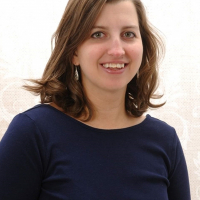Psychology is a Christian discipline?

I’ve started every Psychology class I’ve ever taught with the same question: “Students…tell me what you want to be when you grow up.” I proceed in writing all of the professions and vocations up on the board and then explain one by one how the study of psychology is applicable to that field of work. Learning how humans process information and how they behave certainly supplies a better understanding of human nature as a whole. There’s little doubt that the study of psychology is practical, but is it biblical?
The field of psychology can be a frightening place, a place where we discover the deepest and ugliest traits of human beings, the sinful distortion of the mind, and the failings of individual humans in the context of a society. However, every darkness makes us crave the light. The beauty of psychology lies in the joy of seeing human disparities held up to the image of God Himself, both in comparison and in petition for redemption.
It stands to reason that if humans were created imago dei, in the image of God, that seeking to know the human mind and body would give us a glimpse of the Creator. There is no question that God knows, that he emotes, that he acts, and therefore, so do we. In psychology, we have the distinct pleasure of examining and discovering these traits of man and considering how they might reflect the character of God. We practice this field with discernment: what is the impact of our fallen nature, and what is a shadow of what the Lord will redeem? What is our brokenness, and what is His grace?
The Scripture as a whole records copious human failings, boundless faithfulness by the Lord, and plenty of instruction all to the end that God will redeem His creation in body and mind. We see men and women crying out to God both in utter despair and overwhelming joy. We see Jesus responding with righteous anger, boundless compassion, and thoughtful teaching. We see commands to “train up” children, “take every thought captive,” “be transformed by the renewal of your mind,” and John commands us to “love in deed and in truth.” With other countless Scriptural examples, we can be confident that the way we think and the way we act are important to God. Paul, in his letter to the Galatians, gives the instruction that “each one should test their own actions.” He follows with God’s continued promise: “whoever sows to please their flesh, from the flesh will reap destruction; whoever sows to please the Spirit, from the Spirit will reap eternal life.”
In psychology, as Christians, we have the opportunity to consider and apply good stewardship of God’s creation: care for humans. In understanding the basic mental processes and behaviors of humankind, we can react with this knowledge in compassion and grace to those around us for God’s glory. Those Christians studying psychology today will go on to become the counselors, educators, parents, social workers, lawyers, artists, managers, healthcare workers, and engineers of tomorrow. They will be better equipped to reach out in understanding and compassion when faced with learning struggles, mental illness, injustices, relationship issues, physiological disease, and other failings of the flesh. By God’s grace, they will use their knowledge of psychology to sow to please the Spirit.
About the Author: Jaclyn Partridge completed her Master of Science in Counseling Psychology at Chatham University and her Bachelor of Arts in Psychology from Grove City College with a Minor in Marriage and Family Studies. Mrs. Partridge has always enjoyed working with children and their families in her career as both a teacher and community mental health counselor. She pursued a career in teaching, having developed an Introduction to Psychology class for Trinity Christian School in Pittsburgh, PA based on Dr. David Myer’s text Exploring Psychology. She was humbled and overjoyed to have taught Psychology at TCS for four years up until the birth of her second child. She has also delighted in her career in mental health counseling having worked in a home-based family therapy setting and also in behavioral health at Children’s Hospital of Pittsburgh of UPMC. In her home life, Mrs. Partridge is married and a mother to three young children who always keep her exploring! Her activities include bible study, reading, baking and cooking. She is a lover of learning and discovery, especially regarding the intricacies of the human brain! Her favorite thing about teaching with VSA is the wonderful students who are always eager to learn and discover alongside her!







